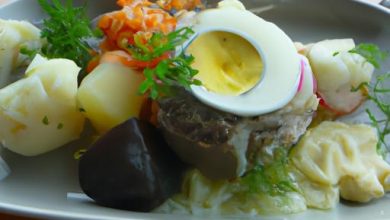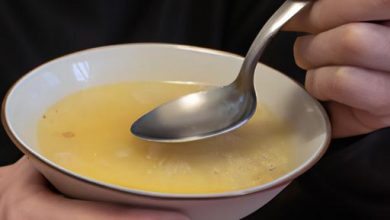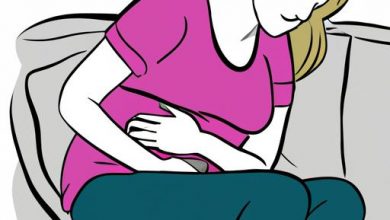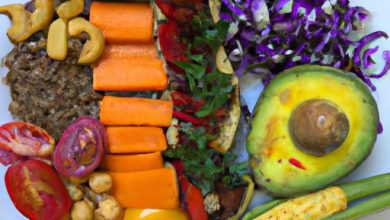What is a Soft Food Diet After Surgery?
After undergoing surgery, one of the essential aspects of a successful recovery is following the right diet. A soft food diet is one of the recommended diets after surgery. This diet typically consists of foods that are easy to chew, swallow, and digest.
Definition of a Soft Food Diet
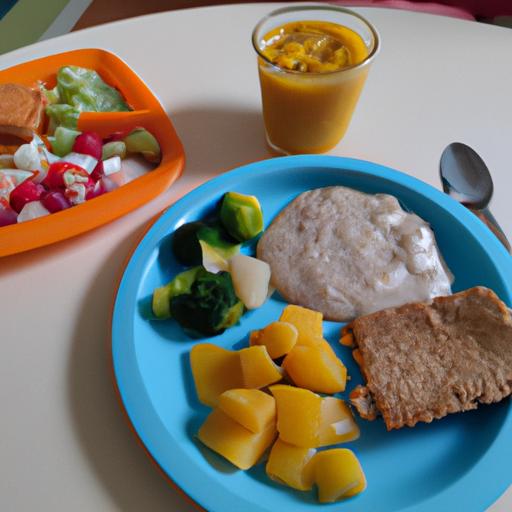
A soft food diet is a diet that includes foods that are easy to chew and swallow, and that do not irritate the digestive system. The main goal of a soft food diet is to provide the body with essential nutrients while reducing the strain on the digestive system.
Types of Food Allowed on a Soft Food Diet
When following a soft food diet, there are specific types of food that are recommended. These foods include cooked vegetables, soft fruits, cooked cereals, soft cooked meats, and fish. Other recommended foods include soups, smoothies, and pureed foods.
Types of Food to Avoid on a Soft Food Diet
While there are specific types of food that are allowed on a soft food diet, there are also foods that should be avoided. Some of the foods to avoid on a soft food diet include raw fruits and vegetables, tough meats, nuts, seeds, and popcorn. These foods can be difficult to digest and may cause irritation to the digestive system.
Following a soft food diet after surgery is crucial for a successful recovery. This type of diet provides the body with essential nutrients while reducing the strain on the digestive system, allowing the body to heal properly.
Explanation of Why a Soft Food Diet is Important After Surgery
After surgery, the body requires a lot of energy to heal, and the digestive system may be sensitive. A soft food diet provides the body with the necessary nutrients without overloading the digestive system. This type of diet is also easy to digest, reducing the risk of nausea, vomiting, and other digestive issues.
Benefits of a Soft Food Diet After Surgery
There are several benefits of following a soft food diet after surgery. This type of diet can help reduce inflammation, promote healing, and provide the body with essential nutrients. A soft food diet can also help reduce the risk of complications and promote a faster recovery.
Risks of Not Following a Soft Food Diet After Surgery
Not following a soft food diet after surgery can lead to several risks and complications. Consuming foods that are difficult to digest can cause nausea, vomiting, and other digestive issues. It can also lead to inflammation, delayed healing, and an increased risk of infection. Therefore, it is essential to follow a soft food diet after surgery to promote a successful recovery.
Why is a Soft Food Diet Important After Surgery?
Following a soft food diet after surgery is crucial for a successful recovery. This type of diet provides the body with essential nutrients while reducing the strain on the digestive system, allowing the body to heal properly.
Explanation of Why a Soft Food Diet is Important After Surgery
After surgery, the body requires a lot of energy to heal, and the digestive system may be sensitive. A soft food diet provides the body with the necessary nutrients without overloading the digestive system. This type of diet is also easy to digest, reducing the risk of nausea, vomiting, and other digestive issues.
Benefits of a Soft Food Diet After Surgery
There are several benefits of following a soft food diet after surgery. This type of diet can help reduce inflammation, promote healing, and provide the body with essential nutrients. A soft food diet can also help reduce the risk of complications and promote a faster recovery.
Inflammation is a natural response of the body to injury, and it is an essential part of the healing process. However, excessive inflammation can lead to complications and slow down the healing process. A soft food diet can help reduce inflammation by providing the body with foods that are low in fat, sugar, and salt. This type of diet also includes foods that are rich in antioxidants, which can help reduce inflammation.
A soft food diet is also rich in essential nutrients, such as protein, vitamins, and minerals. These nutrients are essential for cell repair and growth, and they play a vital role in the healing process. Consuming a soft food diet after surgery ensures that the body receives the necessary nutrients to promote healing and recovery.
Risks of Not Following a Soft Food Diet After Surgery
Not following a soft food diet after surgery can lead to several risks and complications. Consuming foods that are difficult to digest can cause nausea, vomiting, and other digestive issues. It can also lead to inflammation, delayed healing, and an increased risk of infection. Therefore, it is essential to follow a soft food diet after surgery to promote a successful recovery.
When Should You Start a Soft Food Diet After Surgery?
The timing of when to start a soft food diet after surgery varies depending on the type of surgery and the individual’s recovery. In general, it is recommended to start a soft food diet after surgery once the anesthesia has worn off, and the patient feels comfortable eating. However, there are some factors that can influence when to start a soft food diet after surgery.
Explanation of When to Start a Soft Food Diet After Surgery
The timing of when to start a soft food diet after surgery depends on several factors, such as the type and severity of the surgery, the individual’s overall health, and the doctor’s recommendation. In most cases, it is recommended to start with clear liquids first and gradually progress to soft foods.
Factors That Can Influence When to Start a Soft Food Diet After Surgery
The type and severity of the surgery can influence when to start a soft food diet after surgery. For example, if the surgery involves the digestive system, the patient may need to wait longer before starting a soft food diet. The individual’s overall health and medical history can also influence when to start a soft food diet after surgery. The doctor may recommend waiting longer if the patient has a history of digestive issues or if they are at a higher risk of complications. Ultimately, it is essential to follow the doctor’s recommendations and seek medical advice if there are any concerns about starting a soft food diet after surgery.
Tips for Following a Soft Food Diet After Surgery
Following a soft food diet after surgery can be challenging, especially if you are used to consuming a regular diet. However, there are several tips that can help make this type of diet more manageable.
Suggestions for Making a Soft Food Diet More Manageable
One way to make a soft food diet more manageable is to plan your meals in advance. This can help you ensure that you have all the necessary ingredients and can avoid the temptation of consuming foods that are not allowed on the diet. You can also experiment with different recipes to make your meals more exciting.
Ideas for Meals and Snacks on a Soft Food Diet
When following a soft food diet, there are several ideas for meals and snacks that you can consider. Some of these include scrambled eggs, mashed potatoes, smoothies, pureed soups, and soft-cooked vegetables. You can also try different types of pureed fruits and yogurt for snacks.
Tips for Dealing with Cravings and Hunger
One of the challenges of following a soft food diet is dealing with cravings and hunger. To deal with this, you can try eating smaller, more frequent meals throughout the day. You can also try drinking water or a low-calorie beverage to help reduce hunger.
Conclusion
In conclusion, a soft food diet is recommended after surgery as it provides the body with essential nutrients while reducing the strain on the digestive system. The diet consists of foods that are easy to chew, swallow, and digest. Following a soft food diet after surgery can help reduce inflammation, promote healing, and provide the body with essential nutrients. It can also reduce the risk of complications and promote a faster recovery. Therefore, it is crucial to follow a soft food diet after surgery for a successful recovery. By planning meals in advance, experimenting with different recipes, and eating small, frequent meals, you can make a soft food diet more manageable.
